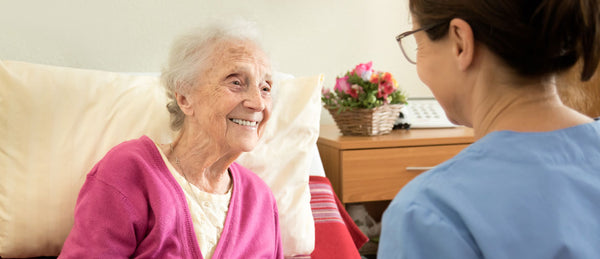Everyone likes a celebration, and a big birthday is a good excuse. This summer, we’ve been blowing out candles for the NHS, as a national treasure reached 70. But it’s easy to forget that the anniversary isn’t just about doctors scurrying around a hospital.
Thinking back to the 1940s, we can also see the start of the welfare state and social care. For the first time, we were told we’d be protected from the 'cradle to the grave'. With the war over, it felt like a reward for the sacrifices every family had made. So we should say ‘Happy Birthday’ to social care, too. And pause to thank the thousands of people who support those with illness, disability, old age or poverty.
At first, there was much less focus on social care than there is today. We didn’t expect to live as long – life expectancy for men in the 1950s was just 66. Now it’s closer to 80, and almost one in four older people need help with daily living. Social care is more important than ever.
Celebrating the achievements of social care
There have been some giant steps forward. Social care was once seen as a service needed by just a few. Now it’s mainstream, and will touch most of us at some time in our lives. It’s moved away from institutions, towards helping people stay independent in their own community. It has also become more responsive than ever to individual needs. So it’s curious that it can still feel eclipsed by the NHS.
One of the reasons is that social care isn’t always newsworthy. Up against Brexit or Strictly Come Dancing, it doesn’t make the headlines. Unless we’re directly involved, we don’t notice it day-to-day. And it’s complicated, so most of us don’t really know how it works. A good example is that many people think social care is free at the point of use, just like the NHS. That’s not true – everyone is means-tested before they can get help from the taxpayer.
The challenges facing social care
It doesn’t help that much recent news about social care is downbeat. We hear about proposed funding cuts, and the difficult priorities that councils have to juggle. Many of us sense that the way we do things now is unfair, but it’s tricky to know what to do about it. It’s proving hard for our political leaders to agree (and roll out) any big changes.
What will the next few years look like? Social care is facing big challenges as it moves towards its next big birthday. As demand from an older population grows, financial pressures won’t go away. This has a knock-on effect. Care providers say that the fees paid by local authorities are too low to keep their levels of care. They’re also having more trouble finding and keeping workers.
Then there’s the challenge of staying joined-up. As people live for longer, they need support for many different needs. This means bringing together different experts in health and social care, and trying to make services run smoothly for the patient.
The changing face of social care
The good news is that the digital world gives us some tools that can help. New devices make it easier to combine data. This can be used to design new services for vulnerable people, preventing problems before they get bigger. Are they eating and drinking properly? Are they taking their medication? Knowing the answers raises the quality of care. It predicts the likelihood of treatable illnesses, and gives healthcare professionals a more rounded picture.
We can also expect to see big improvements in telecare devices like pendant alarms and fall detectors, linking them up digitally. Wearable technology (like GPS-enabled alarms and watches or smart shoes with elderly fall alerts) will become common. Smart sensors are also being built into mattress pads, to monitor movement and snoring patterns.
When we celebrate social care’s 80th birthday, the world will be a very different place. We think that digital devices will be mixed into ‘bundles’ of technology-enabled care. We’ll be able to make our support for vulnerable people more personal, and more targeted. We’ll also be able to free up people for the thing that the machines can’t offer – the human touch.
About Taking Care Personal Alarms
At Taking Care, we’re working on the next generation of telecare products and services to help people age well. With our emergency alarms for the elderly, we already help over 70,000 people stay in the homes they love. We offer 24/7 help at the touch of a pendant or alarm unit, plus a medical helpline staffed by qualified nurses. We also have pharmacists on hand to answer questions on pills and prescriptions. Find out how we support people to remain independent in the homes they love.


